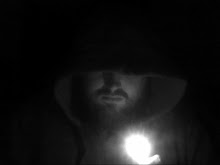It may surprise you to hear that's the case. But the Mail assures us that it is, it definitely is. The BBC has now decided you can say 'cunt' on the radio whenever you want, just as you could on a degenerate blog like this. Soon it'll be cunt this and cunt that, cunt the other. Wall-to-wall cunt. On Radio 4! What the cunting fuck happened to this country?
The BBC was at the centre of a new decency row last night after ruling that the most offensive word in English is acceptable for broadcast.A row has broken out! A row about decency! You'll have heard all about this massive row by now. How could you not? It's all we're talking about round here. I mean, I didn't hear the show, because I wasn't listening to The News Quiz when it was broadcast. Or, indeed, ever. But it was all the fault of Sandi Toksvig. Danish-born Sandi Toksvig, no less. Coming over here...
The Corporation decided that the word – most abhorrent to women – has lost much of its 'shock value' and is tolerable for radio and television.
An executive who cleared it for daytime transmission on flagship Radio 4 even said it would 'delight' many of its audience, who would 'love it’.
Anyway, readers of a sensitive disposition may need to look away now, as the Mail reports the offensive joke uncensored:
The Mail on Sunday feels it is necessary to the reporting of the story to repeat the joke, and apologises in advance for any offence caused.Oh.
Miss Toksvig said: 'It's the Tories who have put the 'n' into cuts.'
Yeah, you see that? You see how the Mail can reproduce the joke without having to asterisk anything out like it usually does for its prudish-about-some-things demographic? Well, that's because, and there's no cleverer way to put this, it doesn't say 'cunts'. It implies the word 'cunts'. But it doesn't say it. Which is kind of a problem for this story about how the BBC has suddenly warmly embraced the word and intends to start tossing it unbidden into our homes and cars until we're so used to it we're naming our kids after it.
Of course, the problems with this story don't even stop there. You can add in these factors: 1) It's aimed at adults on Radio 4, not 'In The Night Garden'. 2) It's a joke. 3) There is no proper radio watershed anyway.
But, y'know, really, all those factors pale into insignificance next to the fact that she didn't actually say it. Not that you'd know that if you just glanced at the article. The revelation that the word was never actually uttered, like the headline and opening imply, doesn't come until paragraph 11.
This is the top story on the Mail's site now, and it's going to be their actual front page splash. Yes, readers, someone making, in a joke, a veiled reference to the word 'cunt', on a radio show, for adults, in October of 2010. Just think of all the children who would have raced upstairs after dinner that evening to listen to The News Quiz, without an adult to put the joke into context for them. Lord only knows where they'll be in 10 or 15 years' time. It's almost too terrifying to contemplate. I only hope they discover drugs, unprotected sex and knife crime first, rather than face a world of teenagers making faintly risque jokes that you've heard a dozen times before about politics. On Radio 4. Who could bear that?
I think the thing that annoys me most about this is that I don't believe for a second that the writers of this piece were actually offended by it. It's just cynical moralising and BBC-bashing for the sake of it. They know it's a complete non-story. Indeed, if they were actually worried about people being offended, they wouldn't be repeating the joke to a wider audience six months down the line. But ultimately they know that scandal sells papers, so if they can splash yet another massive BBC outrage on the front pages they might achieve that goal for another day.
